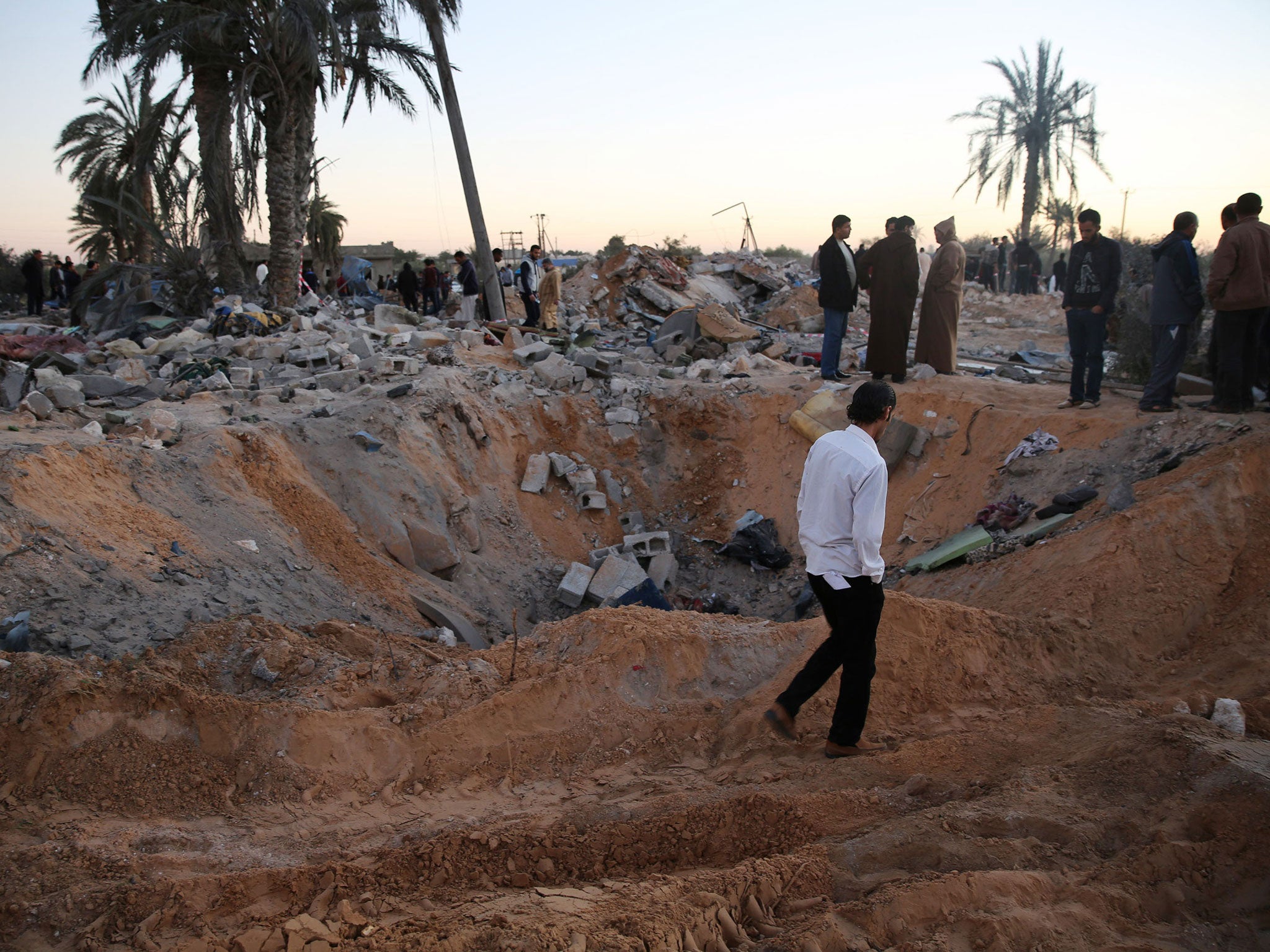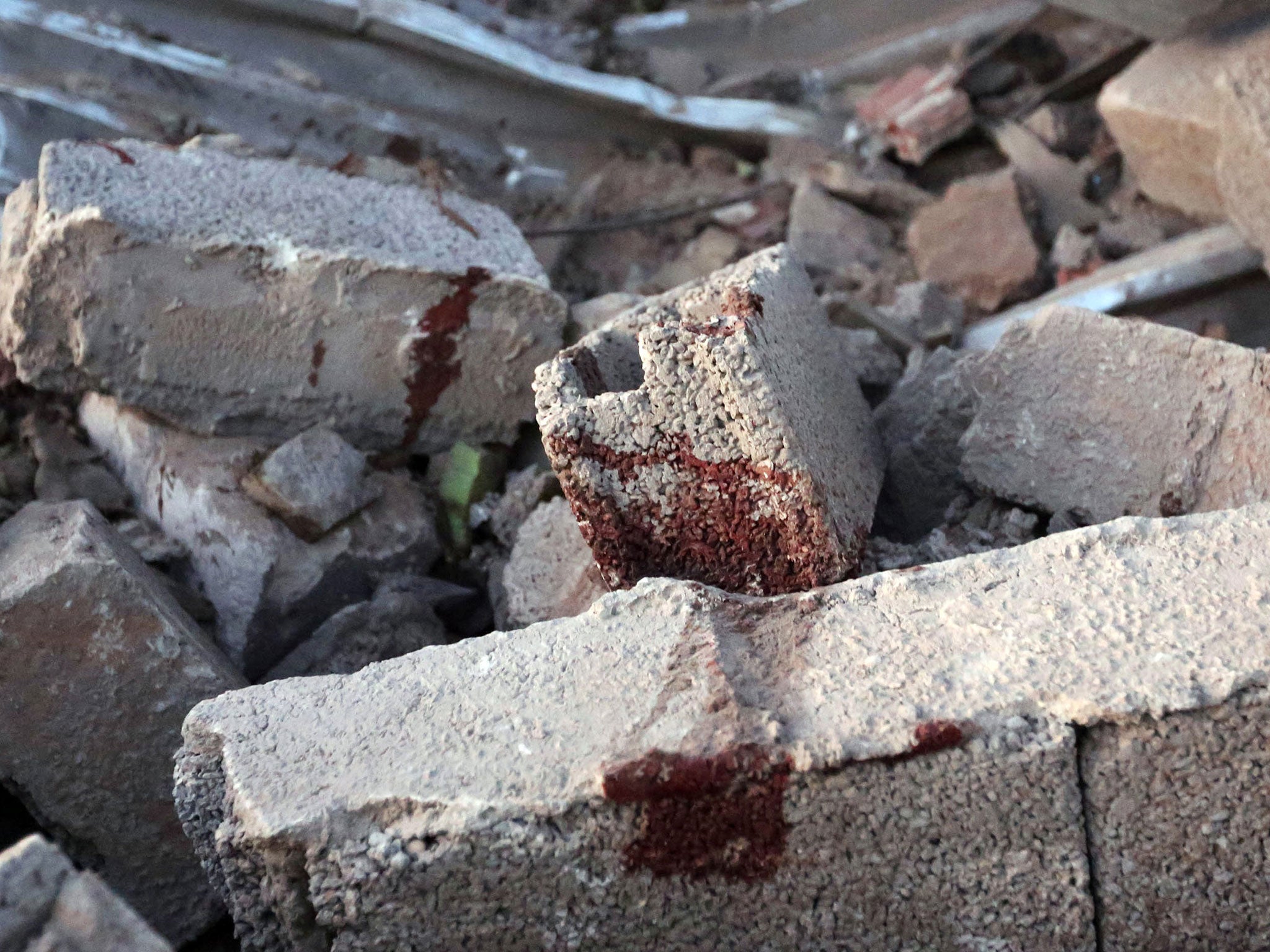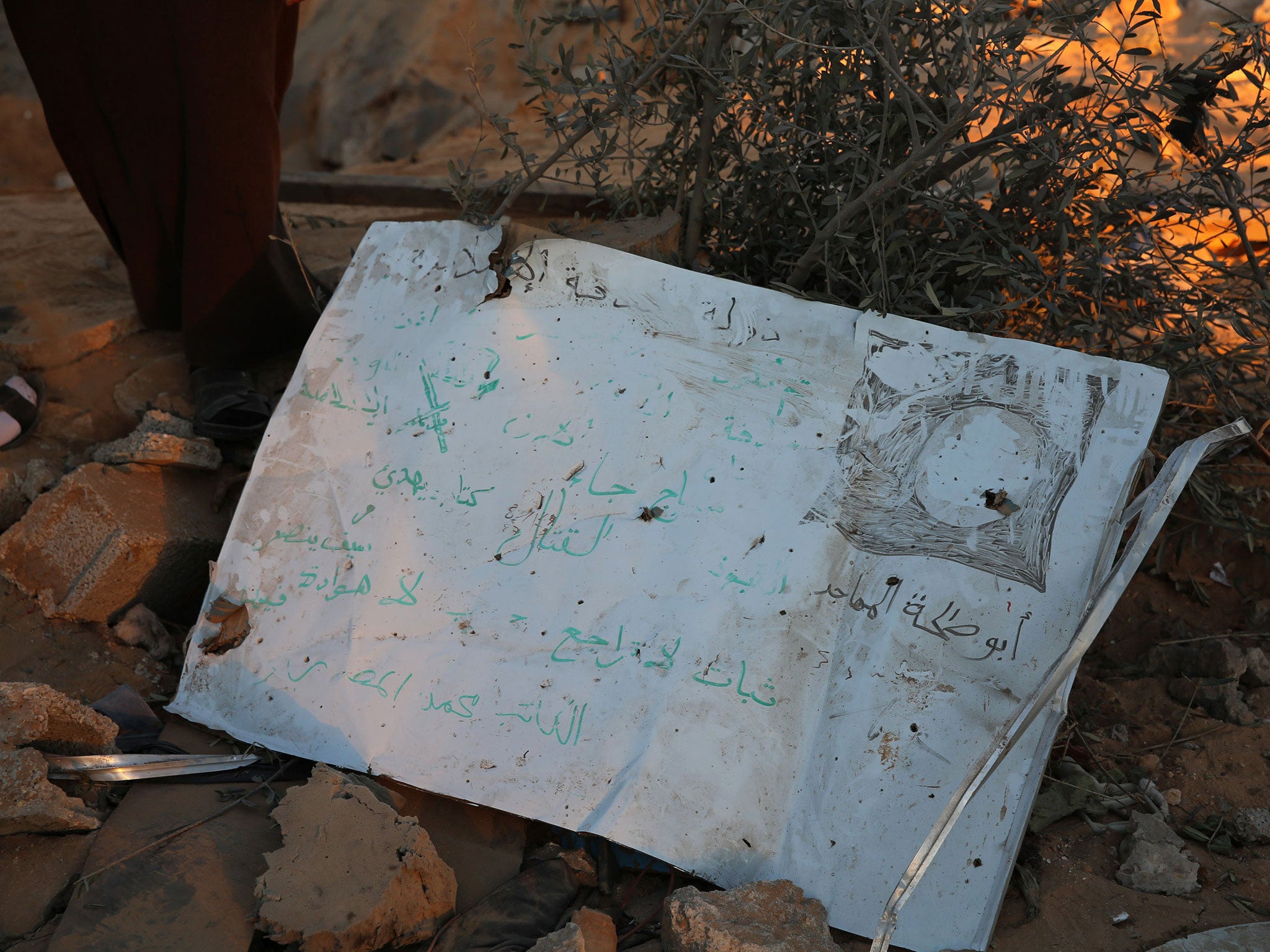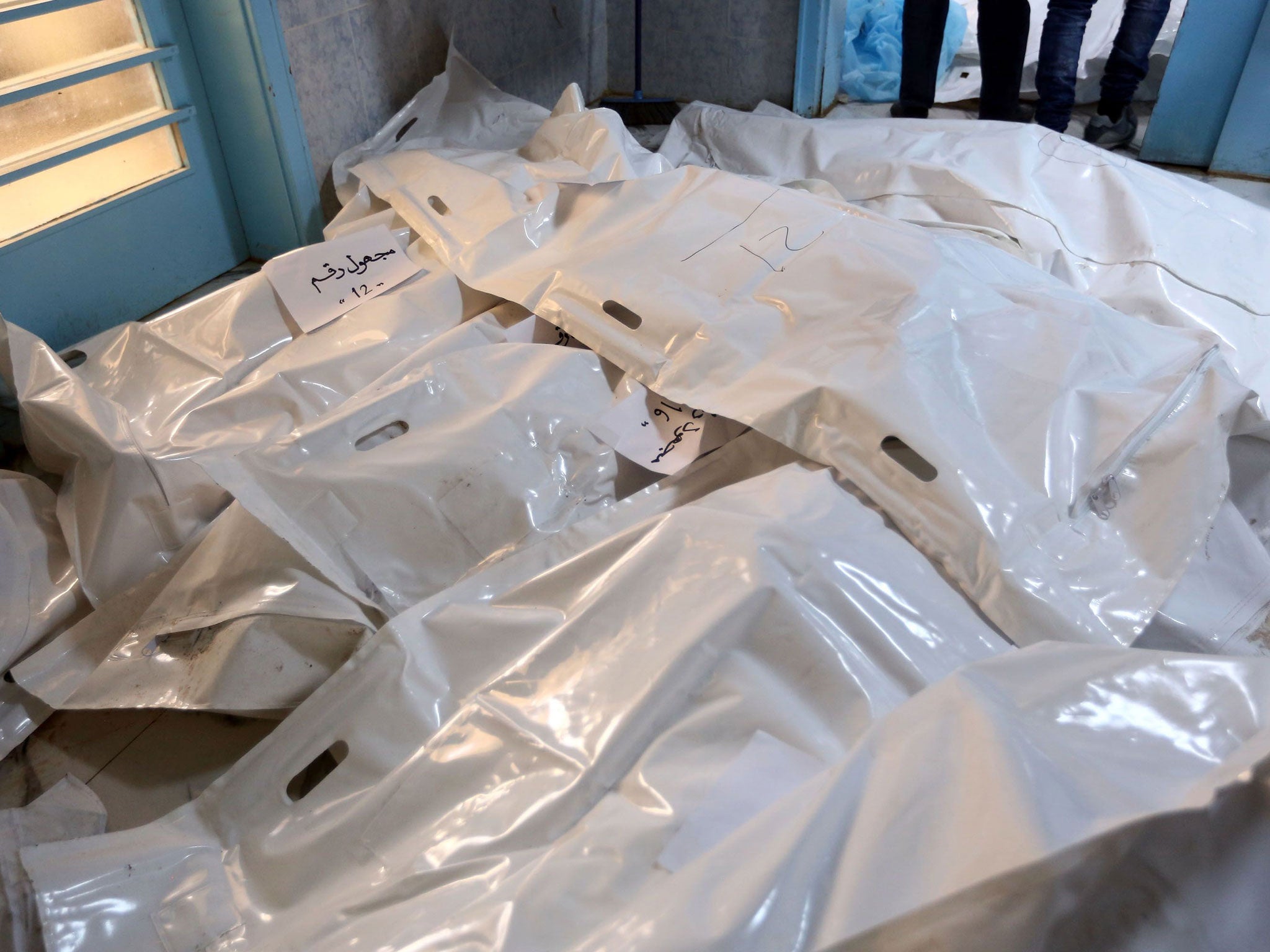Serbian embassy staff being held hostage by Isis killed in US air strike on Libya 'training camp'
Serbian officials said plans were underway to free Sladjana Stankovic and Jovica Stepic

Your support helps us to tell the story
From reproductive rights to climate change to Big Tech, The Independent is on the ground when the story is developing. Whether it's investigating the financials of Elon Musk's pro-Trump PAC or producing our latest documentary, 'The A Word', which shines a light on the American women fighting for reproductive rights, we know how important it is to parse out the facts from the messaging.
At such a critical moment in US history, we need reporters on the ground. Your donation allows us to keep sending journalists to speak to both sides of the story.
The Independent is trusted by Americans across the entire political spectrum. And unlike many other quality news outlets, we choose not to lock Americans out of our reporting and analysis with paywalls. We believe quality journalism should be available to everyone, paid for by those who can afford it.
Your support makes all the difference.Two Serbian embassy employees who were being held hostage by Isis were killed in an air strike targeting the group in Libya.
Serbia’s Prime Minister Aleksandar Vucic said there was no doubt that Sladjana Stankovic, a communications officer, and Jovica Stepic, a driver, died in the bombing in the early hours on Friday morning.
They had been abducted by militants in November after their diplomatic convoy, including the ambassador, came under fire near the coastal Libyan city of Sabratha.
They were being kept in a building outside the same city when it was hit by American air strikes targeting a senior Isis “facilitator” linked to terror attacks in neighbouring Tunisia.
“Apparently, the Americans were not aware that foreign citizens were being kept there,” Mr Vucic told reporters.
Ivica Dacic, the Serbian foreign minister, said they were told of the deaths by foreign officials but that had no confirmation from the Libyan government.
“We got the information, including photos, which clearly show that this is most probably true,” he added.

The US sent F-15E fighter jets on the operation, which is believed to have killed up to 40 Isis militants including Noureddine Chouchane, who had been linked to June’s hotel attack in Sousse, which killed 38 people, and the massacre that killed 22 people at the Bardo National Museum in Tunis.
He said Serbian authorities knew where Ms Stankovic and Mr Stepic were being held and had been working to get them back, adding that Libyan troops were considering an operation to free them.
“I believe we had been close to the solution for them to be freed. Unfortunately, as a consequence of the attack against Isis in Libya, the two of them lost their lives,” Mr Dacic told reporters.
“We will seek official explanation from both Libya and the United States about the available facts and the selection of targets.”

According to the information received by the Serbian security services, a criminal group believed to be linked to Isis had demanded an “impossible” ransom for the hostages, who they were holding at the site that was bombed.
American defence officials said the building hit was an Isis training camp but Mr Dacic said the information “has to be checked”.
Peter Cook, the Pentagon's press secretary, spoke on Friday to hail the “removal” of Chouchane, making no mention of the Serbians killed.
“Destruction of the camp and Chouchane's removal will eliminate an experienced facilitator and is expected to have an immediate impact on Isil's ability to facilitate its activities in Libya, including recruiting new Isil (Isis) members, establishing bases in Libya, and potentially planning external attacks on US interests in the region,” he added.

"This strike demonstrates we will go after Isil whenever it is necessary, using the full range of tools at our disposal."
A spokesperson for the Pentagon told the Independent it could not confirm the deaths of Ms Stankovic and Mr Stepic.
"We are aware of the reports, but, at this time, have no indications that confirm this reporting," she said. "We are still assessing the results of the strike and we will make further statements if and when appropriate."
A Libyan armed group calling itself the Special Deterrent Forces announced on Facebook that the two bodies had been delivered to Tripoli's Matiga Airport and posted photos showing green coffins inside a hearse and sitting on a tarmac.

The Special Deterrent Forces are loyal to the militia-backed government that now controls Tripoli.
Ms Stankovic and Mr Stepic were part of a Serbian diplomatic convoy journeying to Tunisia when it was attacked by gunmen in November.
They were kidnapped but Serbian ambassador Oliver Potezica escaped unharmed along with his wife and two sons.
“The attack happened when one of the embassy cars was hit from behind. When the driver came out to check what happened, he was dragged into one of the attackers' cars,” Mr Potezica told Tanjug news agency at the time.
Isis’ expansion into Libya, which largely remains in a state of chaos following the overthrow of the Gaddafi regime, has raised alarm in the West because of its proximity to Europe and use by people smugglers sending refugees to Italy.
The terrorist group was known to control a swathe of territory along the central coast around Sirte, but Sabratha lies far to the West, in a region previously split between forces loyal to Libya’s two competing governments.
Libya's internationally recognised government has been forced out of the capital, Tripoli, and now operates out of the eastern cities of Tobruk and Bayda.
A rival government, backed by Islamist-affiliated militias known as Libya Dawn, controls Tripoli and much of western Libya, while UN-brokered efforts to form a unity government continue to falter.
The chaos has provided fertile ground for Islamic extremist groups such as Isis and al-Qaeda to flourish.
British, American and European intelligence services are believed to keeping a close eye on extremist networks in the country and a previous American strike killed Abu Nabil, who the US described as a senior Isis leader.
Additional reporting by Reuters
Join our commenting forum
Join thought-provoking conversations, follow other Independent readers and see their replies
Comments